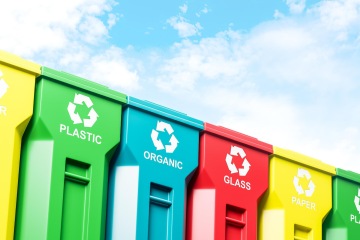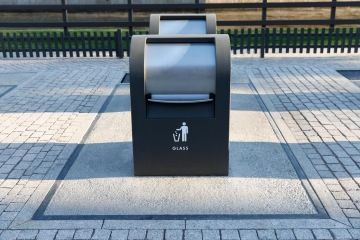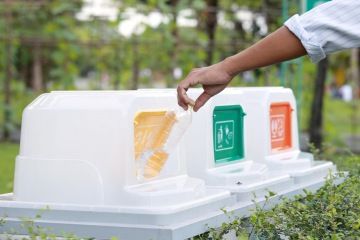GREEN INITIATIVE
Waste Recycling

Working with waste service providers and tenants, we aim to drive improvements in waste management to not just keep our properties clean, but also the surrounds and broader communities in which our investments are located.
|
January 2023 |
|
|
Topic Area: |
ESG |
|
Service Line: |
Asset Management |
|
ESG Inititative: |
Waste Recycling Practices |
Key Goals
Advanced collection procedures
Achieve plastic fee property status
Waste separation and recycling
Underground storage bins
Typical Situation
Typically, we see that waste management procedures and disposal infrastructure at the type of properties we seek to acquire, are rather simplistic and antiquated, with it often being no more sophisticated than the conventional set of large overflowing open-topped waste containers located in a dirty and unsightly rear area of the premises, with little to no waste separation and then noisy scheduled collection.

Often, tenants are unaware of the many improvements they can make toward waste management which not only helps the environment, but can also minimize waste related costs for a tenant in so far as reduced collection costs and rebates on recyclable materials such as cardboard, plastics and aluminum.
Planned Actions
Improving on waste management has many components which need to be customized to each property depending on specific circumstances of the tenant, the type of use of the property and its physical layout. I.e. a freestanding fast-food restaurant will have different needs to that of a end of mile logistics facility. Accordingly, where possible we seek to:
Expected Benefits
Improved general cleanliness and organisation of each property, where a tenant's waste management practices are improved to the extent that proper waste minimization, separation and recycling is achieved, while also achieving cost and environmental savings through re-organized collection routines, modernized underground collection infrastructure, and with scope for each tenant to earn an additional income stream from recycling rebates.

Case studies presented herein are for illustrative purposes only, and are select examples in order to illustrate how our ESG policies can be applied in practicality as it relates to our future portfolio investments. Nothing contained therein should be assumed to be an undertaking or commitment that all investments we make are suitable candidates for such ESG initiatives or that such improvements are even achievable in different circumstances. Certain information has been sourced from third parties and may be incorrect or incomplete.




